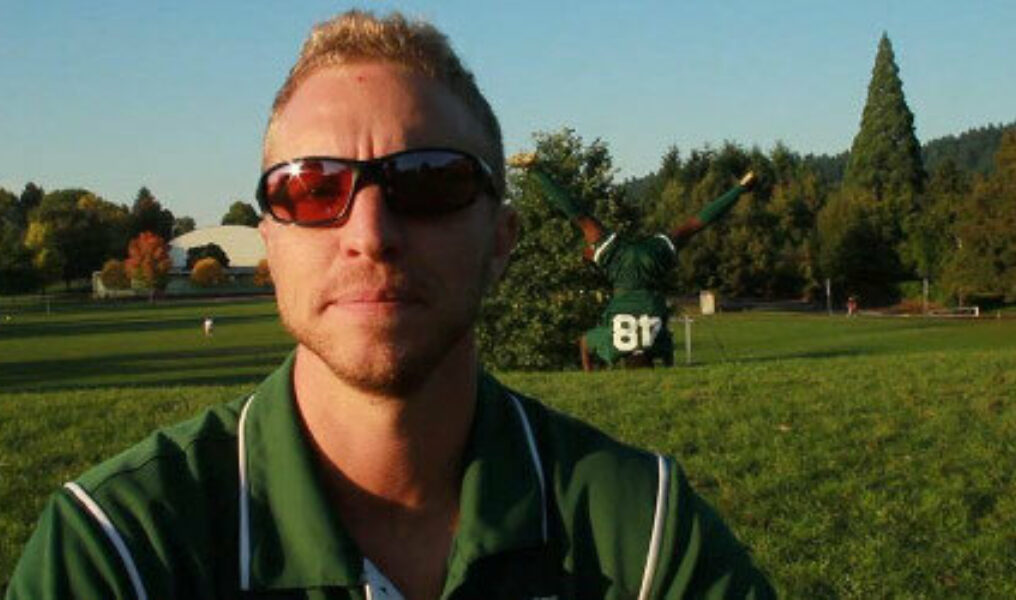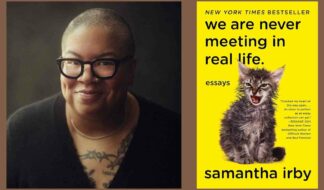As it does with so many youngsters, sports saved Kaig Lightner. Soccer, basketball, volleyball, softball – all gave him a place to be himself. On the fields, courts and diamonds of suburban Seattle, Lightner found a sense of purpose. He gained confidence. He learned skills. And he let out frustration and anger.
Lightner faced more than the usual growing-up pains. At age 8 – when Lightner's parents "forced" him into a Peppermint Patty softball program, and he discovered a passion – he was a she.
Redmond was an affluent, very white neighborhood, Lightner recalls. There was little diversity – certainly none of the sexuality kind.
"I was a sporty, athletic, masculine-type girl. So I was labeled a tomboy," Lightner says.
That was OK at first. But in junior and senior high school, teasing and bullying ran rampant.
"I was constantly asked, 'Are you a boy or a girl?'" he says. At first, he replied, "I'm a girl!" Or he did not answer.
But in fifth grade, he became obstinate. "What do you think?" he retorted.
"I knew internally I was a boy," Lightner says. "But I was too scared to say it out loud."
By the end of high school, the politics of soccer – his primary sport – turned him off. He did not play anything his first year at the University of Washington. But he felt a void in his life. He met a member of the school's women's rowing team in class, and decided to give the new sport a go.
He had no idea the Huskies were the top team in the country.
Tryouts for the women's program were open – and grueling. Anyone who made it through three months was on the team.
"It was the hardest thing I've ever done," Lightner says. "I was four or five inches shorter than anyone else." But the "immense feeling of flying on the water with eight other people" hooked him.
After graduating in 2003 with a degree in philosophy, Lightner looked for a job in his first love: soccer coaching. He could not find full-time work, however. He was adrift.
Two years later he moved to Portland. It was a new city; he knew no one. "I could be anybody," he says. He used male pronouns.
But when he was offered a coaching position with a competitive club, he reverted to female pronouns – and his birth name.
Being two different people, in his personal and professional lives, proved daunting. Two years later – at age 27 – Lightner realized he needed to transition. He began taking testosterone, and left the club.
In 2012 – with the process well underway – Lightner found a way to meld his love for soccer with his desire to affect change by offering underserved youngsters a chance to enjoy the same athletic opportunities he'd had as a kid. He founded Portland Community FC. No one is turned away for lack of funds.
The club grew to eight teams, ages 5 to 17. PCFC fields boys and girls squads, though gender does not matter: There's an open acceptance policy for LGBTQ players, coaches, staff and families.
So while it is not surprising that Lightner is open about his status as a trans man, it was still international news when he came out to his players. That's because his announcement – after training, in a drizzle – was taped on his cellphone, and posted on Facebook.
Lightner had thought for a while about saying something publicly. The timing never seemed right. Yet after meeting Eric Lueshen – a former University of Nebraska football player, and the co-founder of LGBT SportSafe – at a conference in Washington, D.C., Lightner knew the time was right.
It was a low-key talk. Matter-of-factly he said, "We ask a lot of you guys to show up and be yourselves, (but) I haven't totally shared with you something about myself that's important…. I am transgender. What that means is … I was born a girl and I grew up playing soccer as a girl. And that's not something I share with players or people in the sports world very often because it's not an easy thing."
He reminded his players that many of them probably heard comments about their own skin color, "or the way you talk or the country your parents are from. That's really similar to how I got treated as a kid, too."
Lightner's video got picked up by media outlets around the world. But – in vivid testimony to how far young people have come in their acceptance of trans issues – many news stories focused not on Lightner's coming out, but on the first question he got.
"How old are you?" one boy asked.
Kaig Lightner is 36.
The OutField










